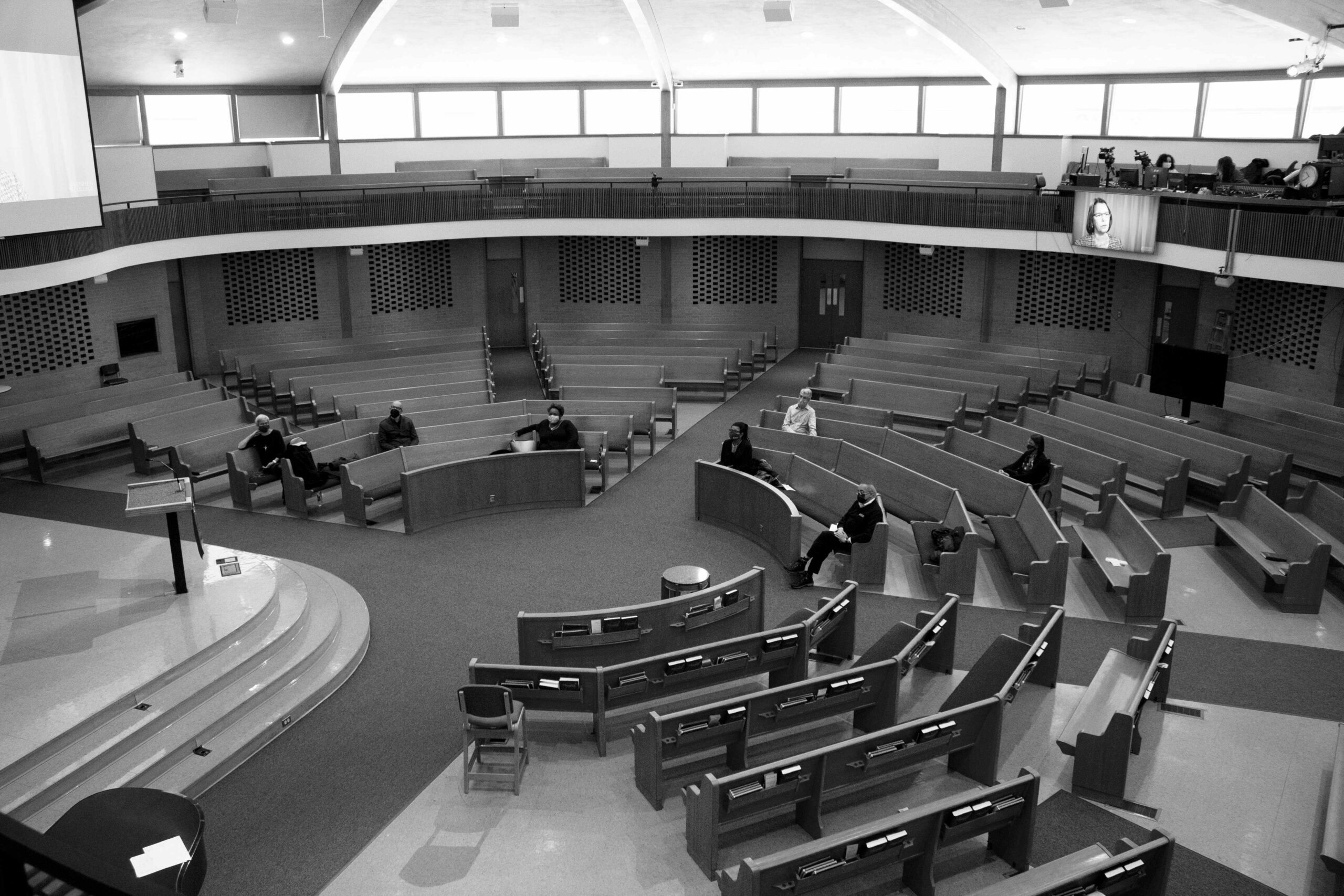“Because of these immoral and persistent inequalities, Goshen College joins in saying Black lives matter. Not more than other lives, but in the face of such injustice, Black lives must draw our concerted attention,” said President Rebbecca Stoltzfus during the first virtual Martin Luther King Jr. Celebration on Monday.
Stoltzfus said she wanted to honor King and “to draw connections from his life and legacy to us and where we are today and where we go from here.”To describe King, Stoltzfus quoted Vincent Harding, a Mennonite minister and colleague of King who spoke at Goshen several times. Harding described King as “a spirit-based, pro-democracy activist, thoughtful social analyst, loving, encouraging pastor who called us to our best possibilities and a justice obsessed, biblically shaped spokesmen for the poor.”
Stoltzfus emphasized the title of King’s last book, “Where Do We Go From Here: Chaos or Community?” and connected that question to our own time and place. She cited King’s ideas on Black disappointment, the advance of racial justice followed by backlash and regression, saying that “Black disappointment is felt painfully again now.”
She spoke on many racial disparities such as health care, income, police brutality and education; All of which are statistically skewed to favor white people. The educational disparities are of specific concern to Goshen College.
She commented on putting anger to good use, saying, “anger is useful because like pain, it signals that something needs attention. [It] is an essential energetic force in our movements toward justice – that is, if we learn the disciplines needed to harness that energy for good.”
Stoltzfus offered an answer to King’s question by saying that “we must work toward community, and to do that we must learn non-violent ways of being together and of resolving our differences. We must connect our work toward equity and justice to our Christian faith and to interfaith dialogue.”
“In order to help build this community,” Stoltzfus said, “we who are white must take responsibility to learn, to change and to act on behalf of racial equality and justice.”
Before ending, Stoltzfus mentioned the new strategic plan for Goshen College, and said that diversity, equity and inclusion will be a crosscutting theme of the plan. She called those who are passionate about this to join the conversation.
To close, she said “Let us be those creative disruptors of racism who call our beloved nation and our beloved Goshen College to an ever more noble and true expression of equity and justice in action.”
Stoltzfus’ speech was followed by a video directed and edited by David Kendall, coordinator of career networks. Students and faculty in the video spoke about their experiences and hopes for the future. In introducing it, Kendall said “this video is a testament to the work that Goshen College commits to and the ongoing process of increasing justice, equity and eliminating racism.”
LaKendra Hardware, director of diversity, equity and inclusion, invited everyone to “actually take a moment to pause, reflect, listen, watch, wonder and be challenged,” saying that the “opportunity to stand in justice, advance equity and embrace the daily work of inclusion is for each of us.”
One of the themes that emerged in the video is the idea of white Mennonite privilege on campus. Dominique Burgunder-Johnson, vice president of enrollment of marketing, spoke about her experience feeling like an outsider on campus because of the large white Mennonite demographic that the institution has catered to.
Lisa Nalliah, a sophomore, was glad to see this issue was addressed and said “it’s hard to navigate being proud of your heritage and values while also making others feel included. Especially those who come from another culture, heritage [or have other] values.”
She continued that, “we need to address Mennonite privilege to fully embody inclusion on this campus.”
Several more administrators spoke in the video affirming the idea that Goshen College is committing to the ongoing fight for racial justice, equity and inclusion.



